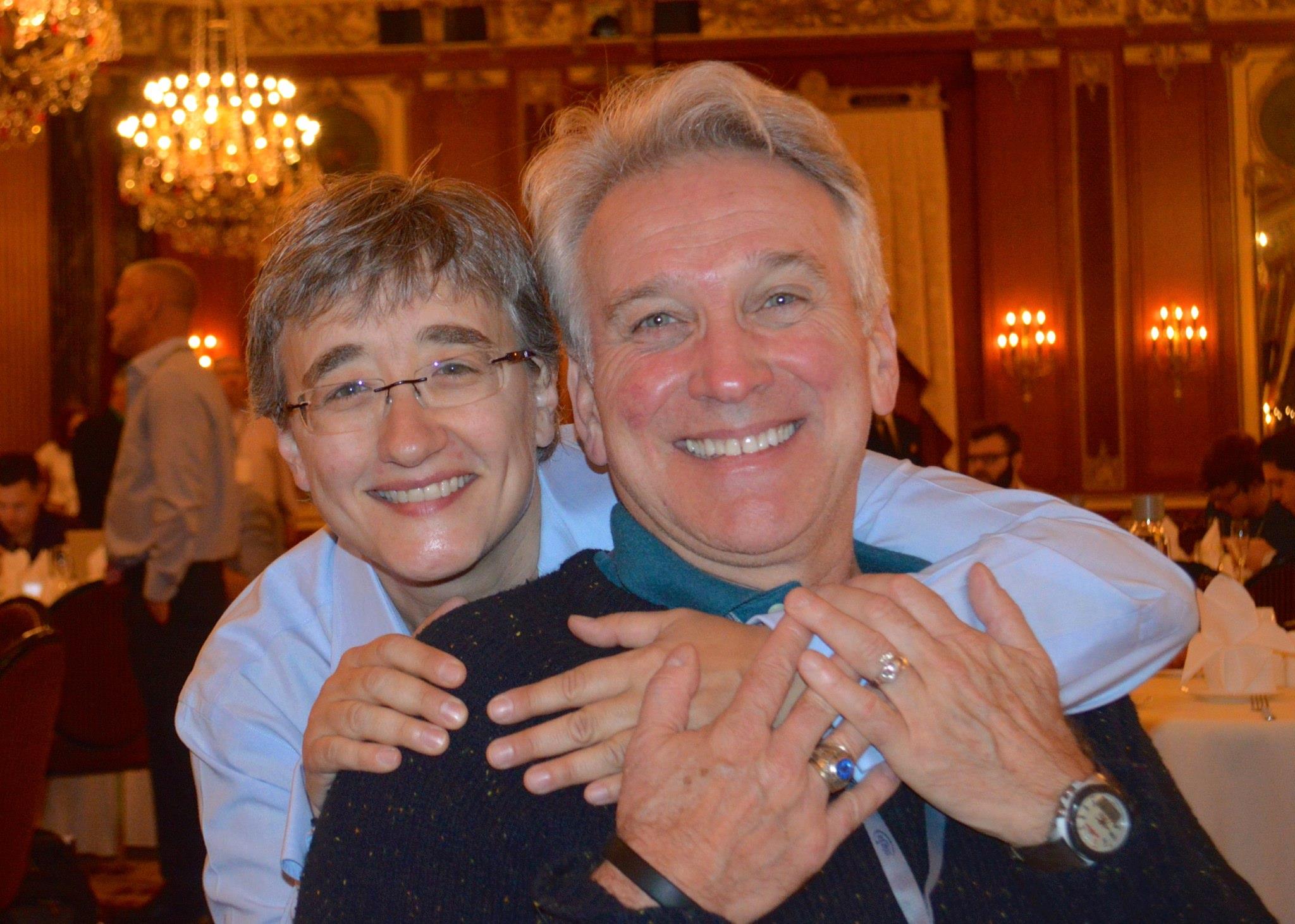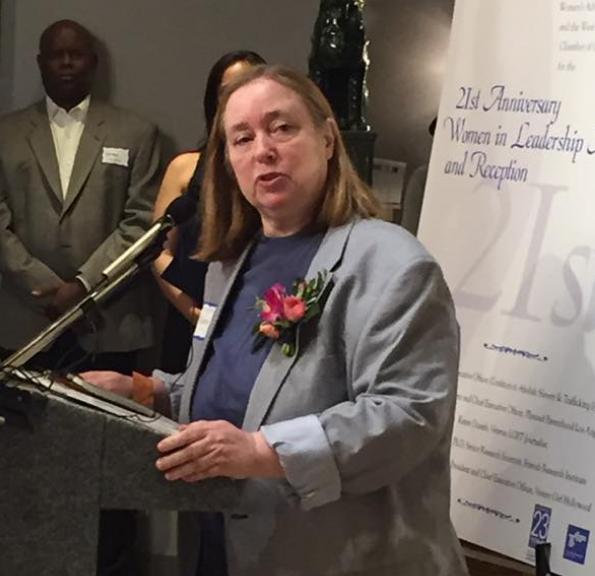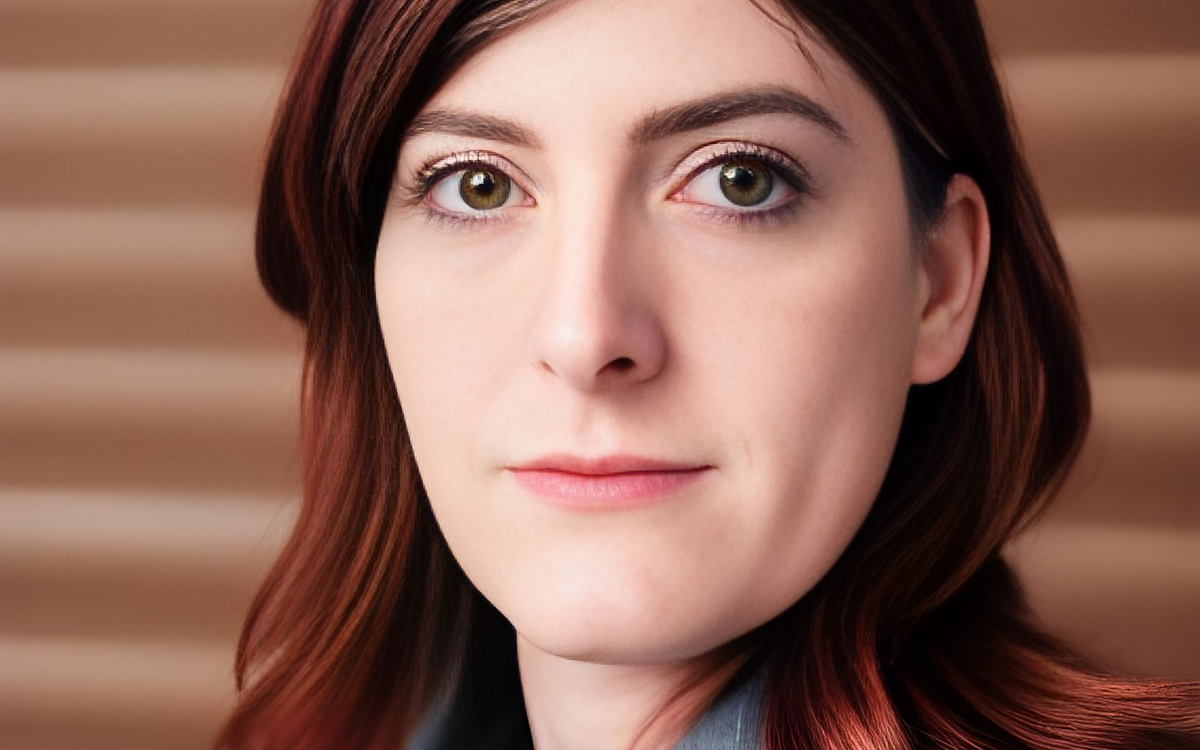Notables
Gay journalist Chuck Colbert dies
Long-time reporter covered Catholic clergy sexual abuse

Chuck Colbert had a touch of old Cary Grant in him — dashing and debonair in his tuxedo at swank LGBTQ events. But he was also deeply humble and bursting with joy from his lifelong devotion to the core beliefs of the Catholic Church.
His journalistic discipline controlling his personal anguish over the proclamations about homosexuality enabled him as an out gay man to report professionally on the sex abuse scandals that rocked the Catholic Church in the early 2000s.
As a regular freelance contributor to the National Catholic Reporter and other media outlets, Chuck debunked tirades against gays and often underscored how girls and young women had been raped and abused by priests and church officials, too.
I thought about this a lot when I heard that Chuck had died on June 30. He was 67.
I was shocked by his sudden passing and how long it took to find out he had died. I met him decades ago through the National Gay and Lesbian Journalists Association. Why did it take a month and a half for news of his passing to spread?
Chuck’s friend Karen Allshouse posted news on his Facebook page: “I’ve learned that while visiting in Johnstown [Pa.] he developed a serious medical issue (involving his esophagus reportedly) and he needed to be transferred to a higher level of medical care and was transferred to a Pittsburgh hospital. Respiratory complications developed and he died. For those who are concerned about his mom — a former high school teacher of his (English) accompanied his mom to the cemetery for the committal service.”
I considered Chuck a loving friend and a journalistic colleague but I realized I actually knew little about him. Our friendship ranged from email exchanges to quick chats at events to deep conversations about religion, including the influence of Thomas à Kempis’ “The Imitation of Christ.”
If anyone sought to imitate Christ, it was Chuck Colbert. He was kind without thinking about it. He walked the walk and scolded those who didn’t but claimed to have created the path.
On March 17, 2002, two months after the Boston Globe exposed the sexual child abuse by priests rotting the foundation of the Boston archdiocese (depicted in the movie “Spotlight,”) Chuck wrote an op-ed in the Boston Herald entitled “Leaders of Catholic Church Must Listen to All the Faithful.”
“Clearly, the Catholic Church in Boston is in crisis. Some blame ‘militant homosexuals’ among the clergy, branding them ‘a true plague on the priesthood.’ Is the crisis, in fact, rooted there? Let me offer another perspective — one based on more than 25 years of faith life as a convert. First, I have failed, somehow, to encounter any Catholic Church culture characterized by ‘priestly homosexuals run amok with no fear of condemnation.’ The reality is significantly more boring,” Chuck wrote.
He went on to describe his scholarly and theological journey from the University of Notre Dame to Georgetown University, Harvard University and Weston Jesuit School of Theology, receiving degrees at each stop.
“Still, it was not until I arrived in Cambridge 15 years ago that my spiritual desolation over the conflict between my sexual identity and my religious conviction found its positive counterpart: consolation,” Chuck wrote in the Boston Herald. “The catalyst for that life-saving, personal transformation began when a bright and theologically astute Jesuit priest became my spiritual director.
“He listened,” Chuck continued. “Over time, I broke the silence of my anguished pilgrim journey and its struggle with homosexuality. He understood that I carried with me the heavy baggage of church teaching, those deeply wounding, soul-shaming words from the Catechism, ‘objective disorder’ and ‘intrinsic evil,’ that pathologize (and objectify) same-gender love and its sexual expression. Through the respectful, nonjudgmental listening and guidance of spiritual direction and through richer encounters of God’s grace in the sacraments, therapy, and prayer, I came to experience God’s unconditional love. I now feel, to the core of my being, that God loves me (I suspect you) along with all my quirky postmodern, American, but very human, strengths and vulnerabilities.”
Chuck became an expert reporter covering the Catholic Church sex abuse scandal. During a May 7, 2002, appearance on CNN, Chuck responded to a question about the culpability of Cardinal Bernard Law, Archbishop of Boston.
“I think the question raises a very interesting question, or point,” Chuck said. “And it is not just the personality of the cardinal. Other bishops who were auxiliary bishops at the time [of Fr. John Geoghan’s arrest for child molestation and release] and are now bishops in other places, as the [Father Paul] Shanley documents have been revealed, these show higher levels of involvement of knowledge. And so it is systemic — but it is also the leadership, the broad leadership that Cardinal Law mustered to either handle or mishandle this scandal, and I think that we will see more of that come out in court.”
Chuck’s expertise was invaluable to the LGBTQ community, as National LGBTQ Task Force Communications Director Cathy Renna told the Windy City Times.
“Chuck was a friend and colleague — one who was extraordinarily principled and helpful, especially when addressing issues related to the LGBTQ community and the Catholic Church. He was instrumental in helping us frame and address the abuse scandal when church leaders scapegoated gay priests, as a person of faith and an intellectual,” Renna said. “[W]orking with him was a vital part of my work taking on the Catholic Church hierarchy while at GLAAD, along with other queer and allied groups. But he was also a pleasure to be friends with, who found joy in life and our community, and was one of the people I most looked forward to seeing at the NLGJA convention and other events. He will be greatly missed.”
Chuck caused some ripples in my life after an interview we did for the online LGBTQ press trade newsletter Press Pass Q in 2016 about my being laid off as news editor by my longtime publisher Frontiers Newsmagazine.
Chuck had interviewed Bobby Blair, chief executive officer of Multimedia Platforms Worldwide, and the new publisher of Frontiers.
“Unfortunately, Karen fell where we realized we were moving toward a digital and Millennial audience, and we wanted to give the generation of Millennials a real shot at creating our content,” Blair told Chuck. “Did you get that on tape?” I asked him.
Chuck Colbert summed up his philosophy via a quote from Leo Tolstoy’s “War and Peace:”
“Life is everything. Life is God. Everything shifts and moves, and this movement is God. And while there is life, there is delight in the self-awareness of the divinity. To love life is to love God. The hardest and most blissful thing is to love this life in one’s suffering, in the guiltlessness of suffering.”
********************

Karen Ocamb an award winning veteran journalist and the former editor of the Los Angeles Blade, has chronicled the lives of LGBTQ+ people in Southern California for over 30 plus years.
She is currently the Director of Media Relations for Public Justice.
She lives in West Hollywood with her two beloved furry ‘kids’ and writes occasional commentary on issues of concern for the greater LGBTQ+ community.

Notables
Trans military advocacy organization nominates new president
Navy Cmdr. Emily Shilling ready for new role at SPARTA

SPARTA, a nonprofit advocacy organization representing transgender military service members in the United States, has nominated its new president and board chair — Cmdr. Emily Shilling of the U.S. Navy.
Shilling, who has served in the military since 2005, has had a full and eventful 18 years in the Navy. She’s completed more than 60 combat missions and now serves as an Aerospace Engineering Duty Officer where she oversees acquisitions. She previously worked as the director of membership at SPARTA.
Shilling grew up moving from place to place around the United States and abroad with her father, who was a pilot during the Vietnam War era and then a doctor for the U.S. Navy for two decades. She traveled around the United States and abroad growing up, including in Pensacola, Fla., Virginia Beach, Va. and Iceland. She was infatuated with all things science fiction and, of course, planes.
“Things like Star Trek, Star Wars, anything that was showing futuristic, fast flying — huge inspirations to me,” Shilling said. “That’s what I wanted to do. I wanted to do something with airplanes or spaceships.”
Shilling joined the Navy to give back and give freedom back to women and fight for educational rights for people, she said. But she stayed for the people and the lifelong connections with fellow service members.
“I have to say, ‘Thank the service for letting me serve.’ They have given me so much. They gave me a lifetime of experience,” Shilling said.
When Shilling came out as trans in April 2019 to friends and family, the Trump-era executive order that barred trans people from serving openly in the military and prevented trans people from enlisting had just taken effect.
“Everybody looks at me like, ‘Oh my god, you got horrible timing. Why didn’t you just come out before?’ I wasn’t ready,” she said.
Shilling would put on her uniform and go to work as her “old self” for several months. It was disenfranchising, awkward, and depressing, she said. In the fall of 2020, she had enough. Shilling came out to the Navy, even though the executive order was still in place. She was willing to “throw out,” everything, including her pension.
“I needed to go live my own life,” she said.
Shilling took out her phone and crafted a coming out message, which she copied and pasted to every contact. To her surprise, almost everyone she worked with was incredibly supportive.
And the 2020 election went her way — President Joe Biden was elected, and he repealed the executive order shortly after he was sworn in.
But she’s still uneasy. If the next presidential election doesn’t go blue, she could be forced to leave.
“I’m still beholden to an executive order,” Shilling said. “The 2024 timeframe makes me very nervous.”
Shilling discovered SPARTA in 2019 online and immediately reached out to the communications director and now previous president, Bree Fram. The nonprofit has provided connections, friends, and support for Shilling and the more than 2,000 other members of the organization. Outside of Reddit threads and Discord servers, there was not a safe space for trans military members to come together and find peer support. SPARTA changed that, Shilling said.
This type of community is incredibly important, especially if trans military service is outlawed once again.
In stepping into this new role, Shilling wants to foster relationships with non-trans aspects of the military and bring in more allies to the movement. She also wants to increase involvement in the diversity action teams and the LGBTQ initiative teams at the Pentagon to ensure representation when crafting policy.
“The worst thing that happens is when people write policy for trans troops, and there’s not a single trans troop in the meeting,” Shilling said. “So continuing to grow those relationships and make sure that we have a seat in the room when people are making policy.”
But most of all, she’s going to keep pushing laws ensuring trans-inclusive service be on the books — and to demonstrate how equipped trans people are to serve.
“Ultimately, our biggest power as an organization is to continue to thrive as trans individuals in service, proving that we are both mentally and physically fully qualified to do some of the most extreme jobs in the military,” Shilling said.
-

 District of Columbia5 days ago
District of Columbia5 days agoActivists protest outside Hungarian Embassy in DC
-

 Virginia4 days ago
Virginia4 days agoSpanberger touts equality, reproductive rights in Arlington
-

 Books4 days ago
Books4 days agoTwo new books on dining out LGBTQ-style
-

 Theater4 days ago
Theater4 days ago‘Andy Warhol in Iran’ a charming look at intersection of art, politics











